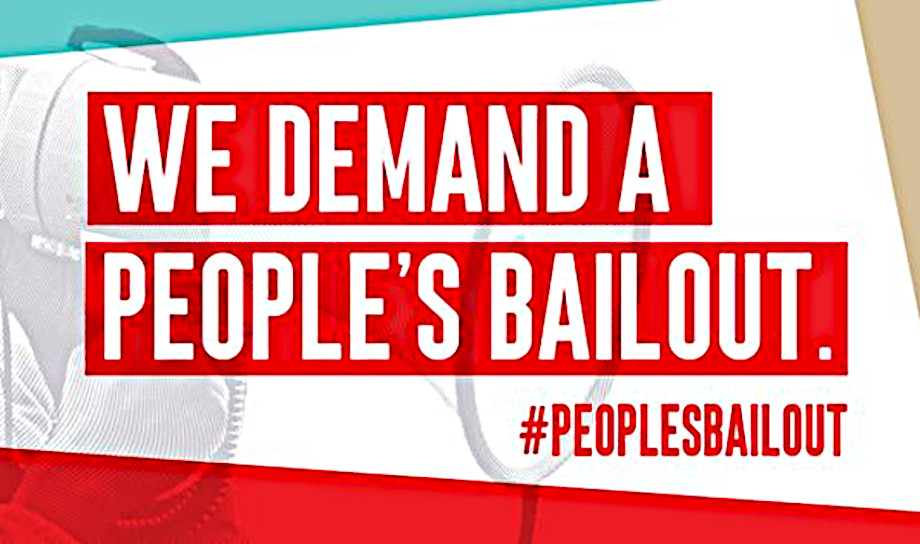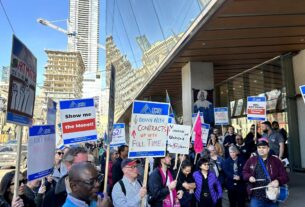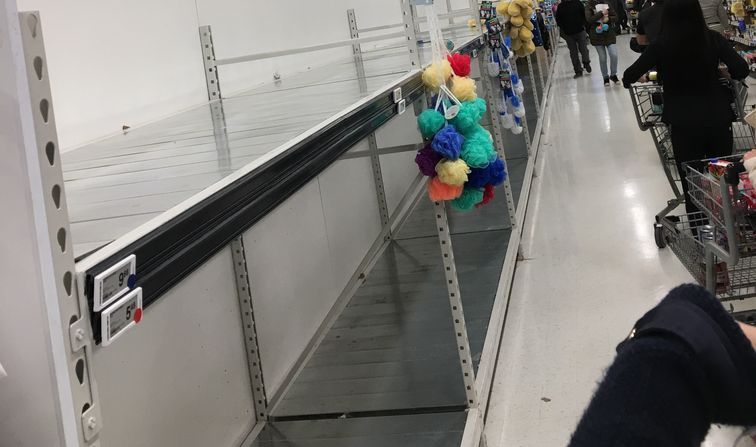As the old saying goes, “It is difficult to make predictions, especially about the future.” While this statement contains a lot of truth, it should not blind us to the fact that some clear political tendencies are emerging from the coronavirus crisis.
It is safe to say that one of the big political losers from the pandemic will be the ideology and practice of neoliberalism. For decades, this has been the dominant ideology in most capitalist economies, an ideology that stressed the primacy of the market and downplayed the role of the state and public services. Thus we saw wholesale privatization of utilities and industries that were previously in state hands, public education being underfunded in favour of private and charter schools and two-tier medicine being introduced to undermine the universal public health care system. We’ve also seen P3 (public-private) schemes used to finance infrastructure projects where the private financiers of the projects have been the long- term beneficiaries while consumers have been the losers. Governments, in turn, haven’t been the champions of the services their citizens expected them to support and promote. On the contrary, they followed the bidding of their capitalist masters and cut public services to the bone. Austerity became the order of the day. The financial crisis of 2008-09 was a clear demonstration of the bankruptcy, in many senses of the word, of neoliberalism. It became obvious during this crisis that the state was the financial underwriter of capitalism or that it, to use Bernie Sanders’ term, provided “socialism for the rich.” The financial institutions and big auto companies were bailed out with billions, while the working class and poor were left with the crumbs.
While we are at this stage of the COVID-19 crisis, most workers will cut some slack to their governments as they introduce measures to control the virus and implement what appear to be even handed fiscal measures to aid economic recovery. The popular line is that we’re all in the same boat, that coronavirus, as it wreaks its havoc, doesn’t distinguish between rich and poor. If only it were true. There are so many different boats out there. If your boat is a luxury yacht on the high seas, you’ll have more chance of avoiding infection than if you’re paddling a canoe in some local backwater.
At this stage, most people are satisfied with the way their different levels of government are handling the crisis. In a poll conducted from 20-22 March, 65% were very or somewhat satisfied with the federal government’s performance, 79% for provincial governments (interestingly, Quebec at 94%), 67% with their municipal governments. Those levels of support will probably be maintained even when governments introduce emergency powers. At the same time, people’s anger will increase at the failure of government austerity policies which have led to a shortage of hospital beds, ventilators, testing packs for the virus and face masks.
The market is not going to be the mechanism to fix these shortages. Under our present system, it will be the state, as the one that requisitions/ purchases the goods and services that are needed, that is the fixer. This isn’t to say that front-line health workers have great confidence in the way governments are performing. More than 2,400 hospital staff took part on March 21 in an urgent Ontario-wide conference call sponsored by the Ontario Council of Hospital Unions (OCHU) focused on the impact of COVID-19 on them as they care for the sick. Throughout the information-based call, several key questions were posed to the hospital workers. When asked if they believed that the Ontario government has taken all the necessary steps to protect their safety and that of the people they care for at work, only 30% said yes. Asked if they had the personal protective equipment (PPE) to keep them and the people they care for safe at work, 77% answered no.
It’s quite possible that the various government packages that are pumping trillions into the system in order to keep the economy afloat and to minimise the danger of social unrest will “work” (in the sense of offering a safety net and generating some economic activity) but again the role of the state as the guarantor of capitalism’s survival will become more evident to masses of Canadians. Trudeau and Morneau show no inclination to make the big banks offer serious help to those with mortgages and other loans. The article in the Toronto Star of 24 March explains how the “generous” offer for deferred mortgage payments from the big 6 banks, who reported more than $46.5 billion in profit last year, would work. “If you skip your mortgage payments for the next six months, the interest will continue to accrue, so you’ll actually owe more when your restart your payments. This will translate in one of two ways: higher payments immediately or a larger balance on your mortgage. Either way, it will result in thousands of dollars in additional interest payments to the bank over the life of your mortgage.” Imagine if there was an actual mortgage “holiday” that would offer real relief to people with the banks having to forgo a few billion dollars of profit. Go one step further and imagine all the banks being nationalized to provide cheap mortgages and credit to businesses.
And what about a cure? Who do we rely on, Big Pharma or the state? According to Gerald Posner, author of Pharma: Greed, Lies, and the Poisoning of America, “Pharmaceutical companies view Covid-19 as a once-in-a-lifetime business opportunity.” Dozens of Pharma companies are now vying to develop a vaccine and other treatments.
“The truth is that profiting off public investment is also business as usual for the pharmaceutical industry. Since the 1930s, the US state financed National Institutes of Health has put some $900 billion into research that drug companies then used to patent brand-name medications, according to Posner’s calculations. Every single drug approved by the Food and Drug Administration between 2010 and 2016 involved science funded with tax dollars through the NIH .… Taxpayers spent more than $100 billion on that research.” (from Big Pharma Prepares to Profit from the Coronavirus, in The Intercept)
Capitalism has shown itself to be a predatory, clapped out system. In normal times, the state props up the system and takes on the role of providing essential services that the entrepreneurial “risk takers” are averse to assuming. In this time of unprecedented crisis, both capitalism and its state will be facing big questions from workers who have hitherto accepted the status quo. In this situation, there are great possibilities for the growth of socialist ideas.




